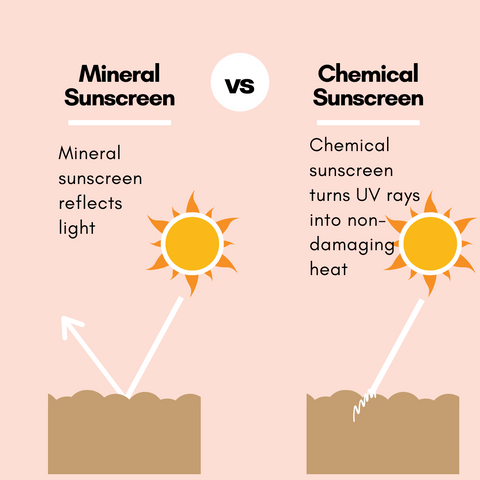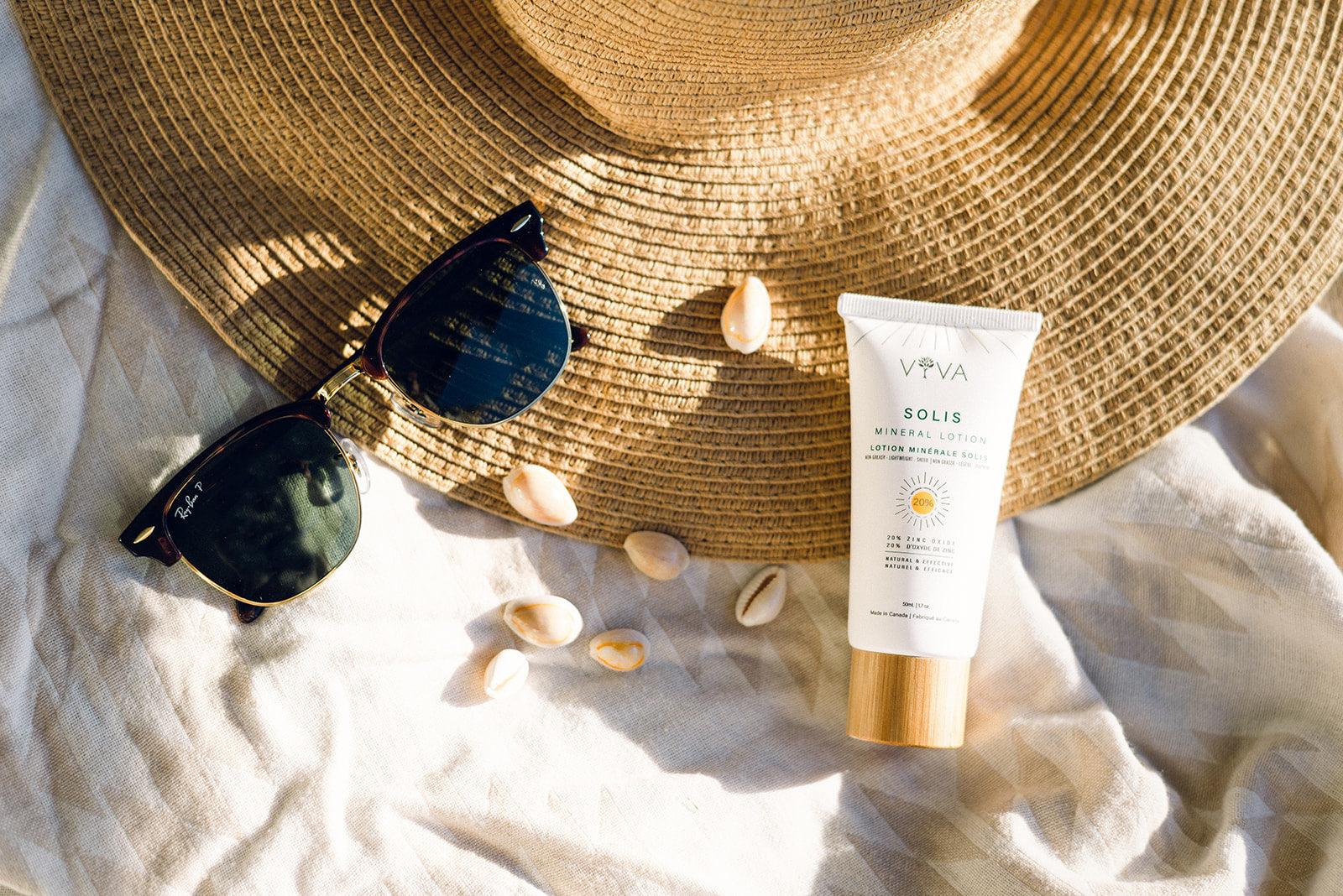Chemical Vs Mineral Sunscreen
We all love spending time in the sunshine, getting the Vitamin D boost and feeling serotonin flowing through our bodies. But we know that the sun, as glorious as she is- can be incredibly harmful to our skin. The sun can damage or kill our skin cells which can lead to skin cancer. By wearing sunscreen every day we may be able to curb the negative effects of sun exposure.
Although there have only been four scientific studies that look at the use and effectiveness of sunscreens when it comes to cancer prevention, skin cancer itself has been rising since the 1950s which is curious when you consider we have more options to choose from.
With the increase in sunscreen recommendations over the years, it could be that the use of sunscreen encourages people to stay in the sun much longer- which in turn increases their exposure and risk of skin cancer. (1) Most people only use ¼ of the amount necessary with each application and don’t reapply as frequently as they should. It is recommended that you reapply sunscreen for as long as you are outside.
When it comes to sunscreen categories, there are two types: chemical and mineral. The main difference between chemical and mineral sunscreens can be found in their ingredient list. Chemical sunscreen causes a chemical reaction by using active ingredients to absorb the sun rays, turn them into heat, and then release the heat through the skin. Chemical sunscreens have ingredients that may potentially cause health problems. Mineral sunscreens, on the other hand, use two natural minerals—zinc oxide and titanium dioxide—as active ingredients. These minerals simply sit on top of your skin and protect it by reflecting away UVA and UVB rays. Mineral sunscreen works immediately once applied whereas the chemical takes around 30 mins to be absorbed into the skin.

Reference: theprettyhonest.com
Zinc Oxide vs Titanium Dioxide
Zinc oxide is currently the only active ingredient (for both chemical and mineral sunscreens) that is “proposed to be safe and effective for sunscreen use” according to the FDA. Titanium dioxide is the other popular mineral that you will find in many sunscreens, however, some studies have shown that this mineral is possibly carcinogenic to humans.
What makes mineral sunscreen safer than chemical sunscreen? The active ingredients in chemical sunscreen can damage your body as they soak in through your skin. Plus, they can be bad for the ocean and sea creatures. Oxybenzone — one of the most common active ingredients in chemical sunscreens — is a hormone disruptor, causes an allergic reaction and contributes to coral reef bleaching when it’s washed off in the ocean. It can be quite irritating to your skin, especially if you have sensitive skin and also worsen melasma and rosacea.
Since zinc oxide is used as a skin protectant, it rarely irritates the skin, making it great for all skin types including sensitive skin, children’s skin and also eczema sufferers. Mineral sunscreens can also be applied on top of makeup and other skin-care products. Zinc oxide sits on top of your skin (rather than soaking in, as chemical sunscreens do) and protects you by scattering, absorbing, and reflecting the sun’s rays.
Nano vs Non-nano Zinc Oxide
Nano Zinc Oxide refers to the particles that are small enough to penetrate your skin and pores. While a nanoparticle will enter your bloodstream and clog the pores, the Non-nano Zinc Oxide particle stays on top of your skin to form a barrier that protects you from the UV. For that reason, Non-nano Zinc Oxide is considered safer and better when it comes to mineral sunscreen.
When choosing a sunscreen, you want to find one that is both safe and effective. Safe means a sunscreen that won’t irritate your skin or harm your body and effective means a sunscreen that effectively protects you from the rays of the sun.
Health advocates, like Amy Myers, MD (www.DrAmyMyers.com), believe zinc oxide sunscreens are better for your body than either chemical-based sunscreens or exposing your skin to the sun without sunscreen. And zinc oxide is the best and safest of the two mineral sunscreen active ingredients because it is truly a broad-spectrum blocker. That means it protects you and your family from both UVA and UVB rays. Titanium dioxide does a good job of keeping UVB rays out, but it’s not as effective when it comes to UVA rays.
Taking care of your skin is important. Sunscreens may provide protection, but you should be careful about which products you choose and be sure you are following the directions for maximum protection. The new Viva Solis Mineral Lotion is a great place to start for everyday wear. After 6 years of careful formulation, the result is pretty impressive. It’s all-natural and offers long-lasting protection without leaving a white residue or grease. Formulated with 20% Zinc Oxide offering, not only an antimicrobial and non-comedogenic benefit, but it also acts as an exceptionally effective shield against the sun and prevents burns and damage. As this lotion is completely titanium-free, and non-nano Zinc Oxide, it is perfect for most skin types and users of all ages!
Sources:
https://gracemed.org/using-


